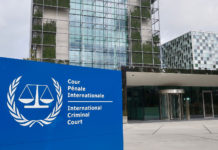
*Carlos García
Director of Special Projects
Venezuela Awareness
May 14, 2012. Washington,DC
Now days it seems that the term “human rights” is most often used to refer to the violation of the so-called inalienable rights, such as the rights to life, liberty or freedom of expression. Often ignored in this context are the many other collateral victims whose anguish, personal and material losses as well as suffering seem to inconsequential. We should be concerned that this is happening and do something about it.
Whereas it would be extremely difficult, if not impossible, to monitor each and every person whose fundamental rights have been violated as a result of some action of the state or its citizens, it is obvious that when considering human rights there exist many other terrible consequences for people that never are captured when human rights statistics are compiled.
To the countless dead and injured as a result of terrorist acts in public places, and even in their own homes, we must add the number of people who have lost their homes as a result of such actions, or who no longer have access to their schools and universities because they simply do not exist due to violent acts. Perhaps one should consider as well those who can no longer visit their churches, historic sites, museums, or even modest parks, due to the destruction of such places and the inability of the state to repair the damage caused by others in a short time.
What can one say about the children orphaned by terrorist acts, or as a consequence of actions taken the state in response to such acts? Has anyone considered what happens to the family members whose loved ones are political prisoners in countries such as Cuba, China, Iran or Venezuela?
What happens to the mothers, wives and children of hostages held by Colombian guerrillas? Could someone explain what consideration should be given to the families of the 50,000 people killed as a result of drug related violence in Mexico? Were all of those victims members of drug cartels or do they include innocent children, men and women whose principal mistake was that of having been being born?
Perhaps you have reflected upon the families of the journalists who have been killed in Mexico whose fatal flaw was having the courage to investigate and to let the people know about the activities of criminal organizations in Mexico? Has anyone considered what has become of the families of those singers killed because their songs included life stories of drug dealers in their country?
It is true that one of the most significant manifestations of globalization has been our ability to learn, almost instantly, of events as they happen all over the world. The paradoxical fact is that the information we receive is of such volume and of such a nature, that it often overlaps with other reports preventing us from clearly understanding what is happening or how to deal with the information we have received. An example of this phenomenon is the recent attention given to the subject of decriminalizing , or legalizing drug use.
In the opinion of some authorities no clear evidence has been presented as to why drugs should be legalized, or decriminalized. Others insist that drug trafficking has led to widespread violence, as is abundantly clear in the case of Mexico. For this reason, they say, once drugs are no longer illegal, drug related violence will disappear.
There is no doubt that Mexican drug cartels have financed many forms of violence and other criminal activities with their drug proceeds. The same has been done by the guerrilla organizations in Colombia and terrorist groups in Afghanistan. It is therefore understandable that the issue of what to do about drugs be put on the table. It is encouraging to note that this subject has been presented as part of some election campaigns. It was even a topic for private meetings among heads of state, during the recent Summit of the Americas held in Cartagena, Colombia.
One should keep in mind that the over-riding concern should not be whether the legalization of drugs would lead to reduced violence, or reductions in other forms of criminal activity, as serious as they surely are. In seeking to decriminalize drugs and their use, we must not forget for a moment the most important responsibility to which the actions of the State must be committed, that being the protection of all those human being that are its citizens and the rights they have as a result thereof.
In addition to the violence that we associate so frequently with drug trafficking, there is a drama that many seem to forget; that is the situation of drug addicts as the primary victims of drug trafficking, and that of their families and associates, as secondary victims, but also to the millions and millions of potential victims that can be injured, robbed, attacked, or who simply die as a result of the irresponsible actions of those under the influence of drugs.
As one considers the important and complex situation of human rights violations occurring to collateral victims of the actions generated in the above cases, we dare to ask whether in all these discussions that have developed regarding the legalization of drugs, some will give cognizance of the consequences that the indiscriminate sale of drugs could result in not only for people with this terrible disease, but also for those who, like the vast majority of world citizens find themselves at the mercy of those actions or omissions of drug users. ¿Will someone protect our human rights?











